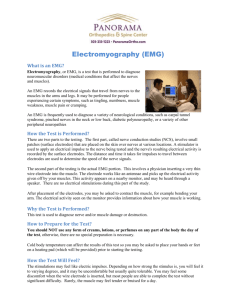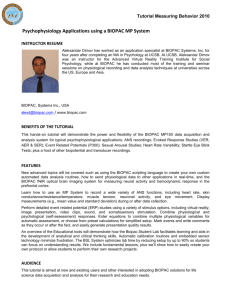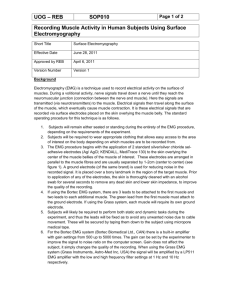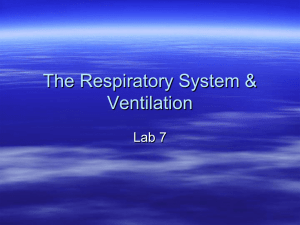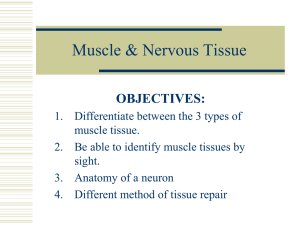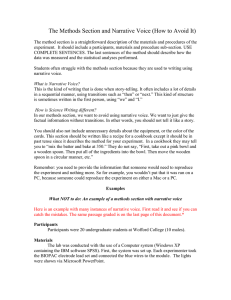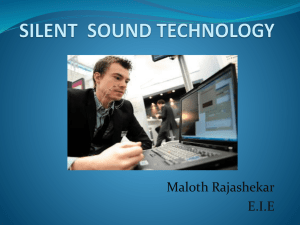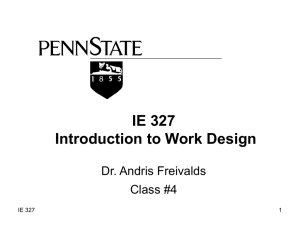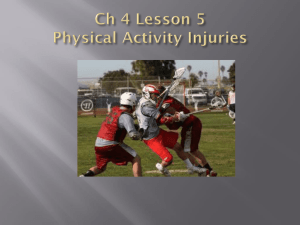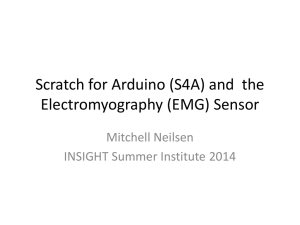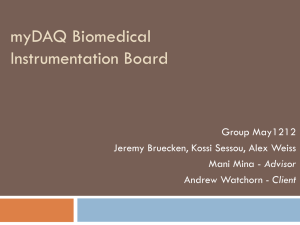Biopac EMG Power point presentation
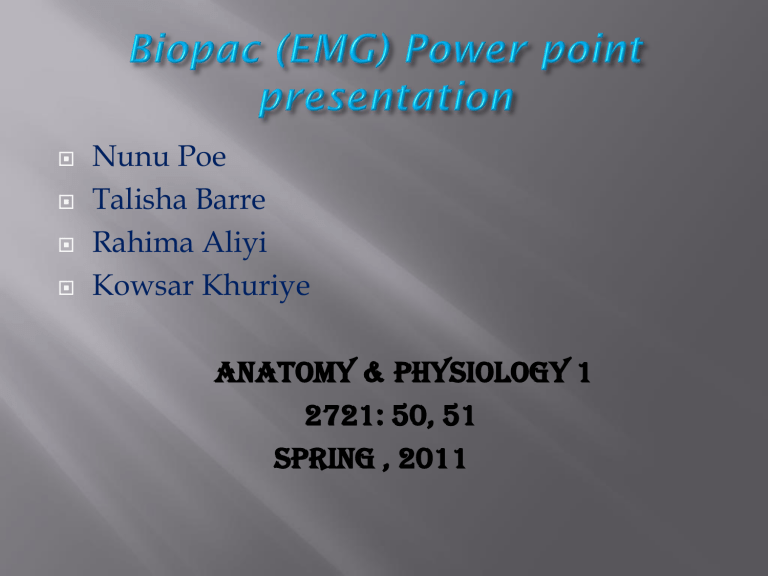
Nunu Poe
Talisha Barre
Rahima Aliyi
Kowsar Khuriye
Anatomy & Physiology 1
2721: 50, 51
Spring , 2011
ELECTROMYOGRAPHY
Definition
Electromyography (EMG) is a diagnostic procedure to assess the health of muscles and the nerve cells that control them (motor neurons).
Uses
Clinical/ Biomedical application
Muscle detection
Muscle decomposition
Muscle processing
Muscle classification
Thus, this EMG paper provides neurologists that to analysis procedure
After exercising, our forearm muscle can be stronger so that we can squeeze our fist more tightly!!!
Materials
BIOPAC electrode lead set (SS2L)
BIOPAC disposable vinyl electrodes (EL 503)
Computer system
BIOPAC student lab 3.7 for PC running
Windows
BIOPAC acquisition unit (MP35/30)
BIOPAC wall transformer ( AC 100A)
BIOPAC serial cable (CBLSERA) or USB cable
(USB1W) if using a USB port
It is easy to figure out what is wrong with muscle
It is not very expensive
It does not take space widely
It can not hurt patients
0,3
0,25
0,2
0,15
0,1
0,05
0
Lowest Low High Highest
Control
Experiment
0,25
0,2
0,15
0,1
0,05
0
Lowest Low High Highest
Control
Experiment
0,2
0,18
0,16
0,14
0,12
0,1
0,08
0,06
0,04
0,02
0
Lowest Low High Highest
Control
Experiment
0,2
0,18
0,16
0,14
0,12
0,1
0,08
0,06
0,04
0,02
0
Lowest Low High Highest
Control
Experiment
80
60
40
20
0
Average of control data
Average of experiment data
Our hypothesis was disproved and therefore, our results shows that after exercising, forearm muscle became fatigue and cannot squeeze tightly before doing exercise.
Technically, there are four stages muscle tension , lowest, low, high, highest, and, in order to get accurate levels, we have to squeeze our fists stronger and stronger. However, we sometime, squeezed incorrectly at wrong stage.
Experiment average should be lower than control average when we lift weight. If the results did not turn out as expected, the experiment could have been repeated.
Psychologists employ EMG to intervene with problems attributed to excessive psycho physiological arousal.
Rehabilitation nurses and therapists treat incontinence related to dysfunction of the pelvic floor muscles with EMG feedback.
Physiatrists, orthopedists, and neurologists may be interested in EMG procedures to enhance diagnosis of movement disorders as well as monitor the effects of medicines and surgical interventions designed to impact muscle activity.
http://www.ncbi.nlm.nih.gov/pmc/articles/P
MC1455479/
Martini, Frederic H., & Ober, William C. (2011).
Visual Anatomy&Physiology. Sanfransico, CA
94111: pearson. Prin http://www.delsys.com/
